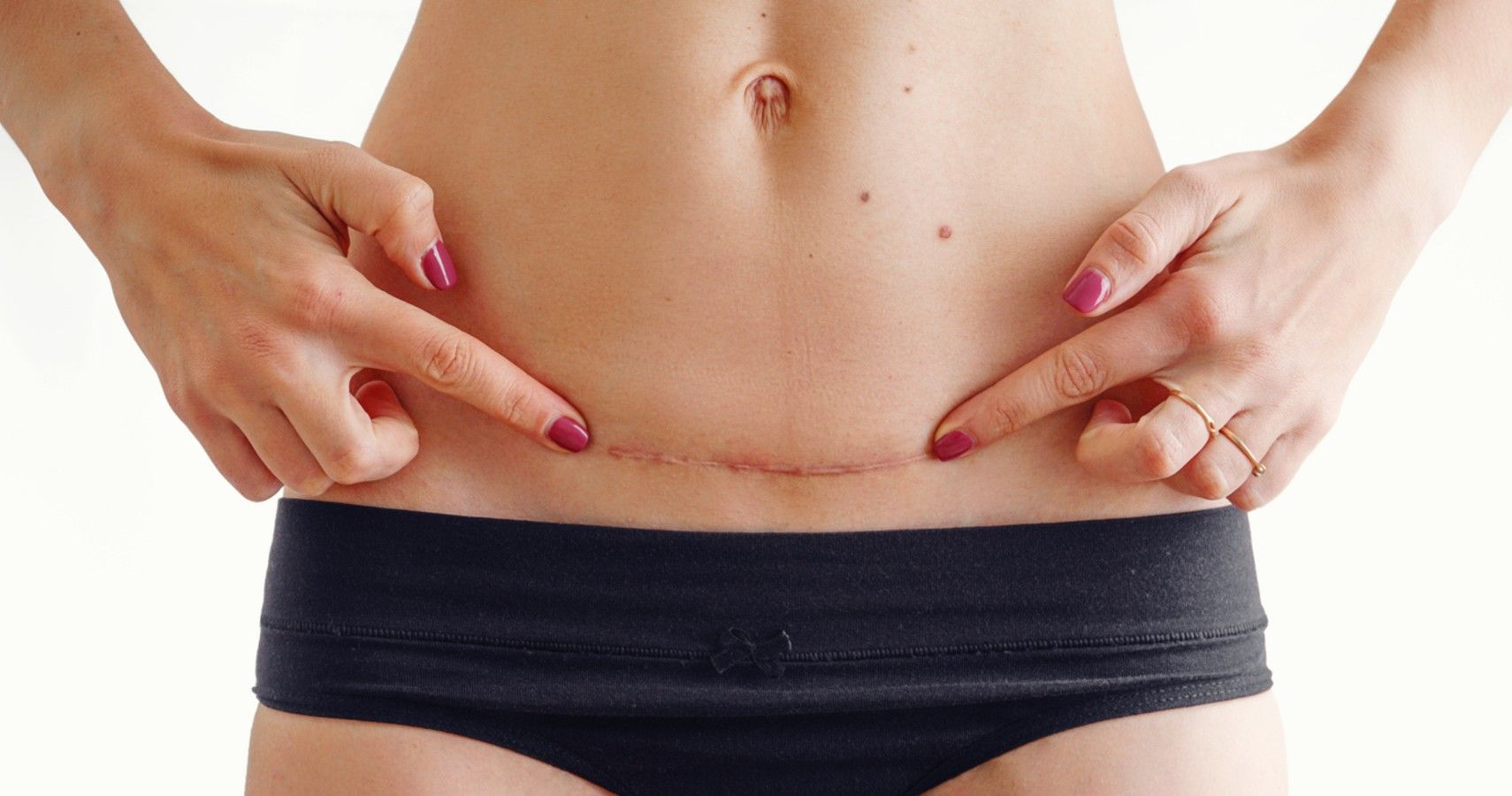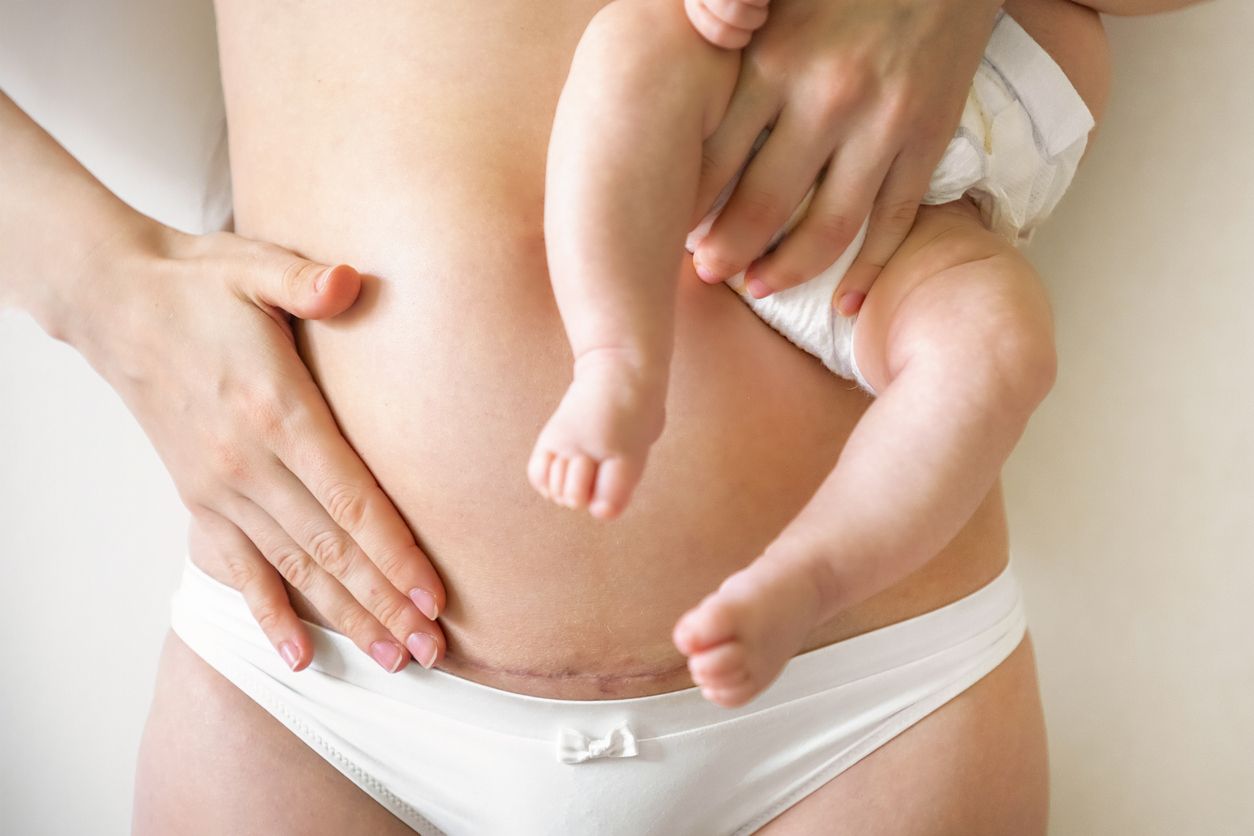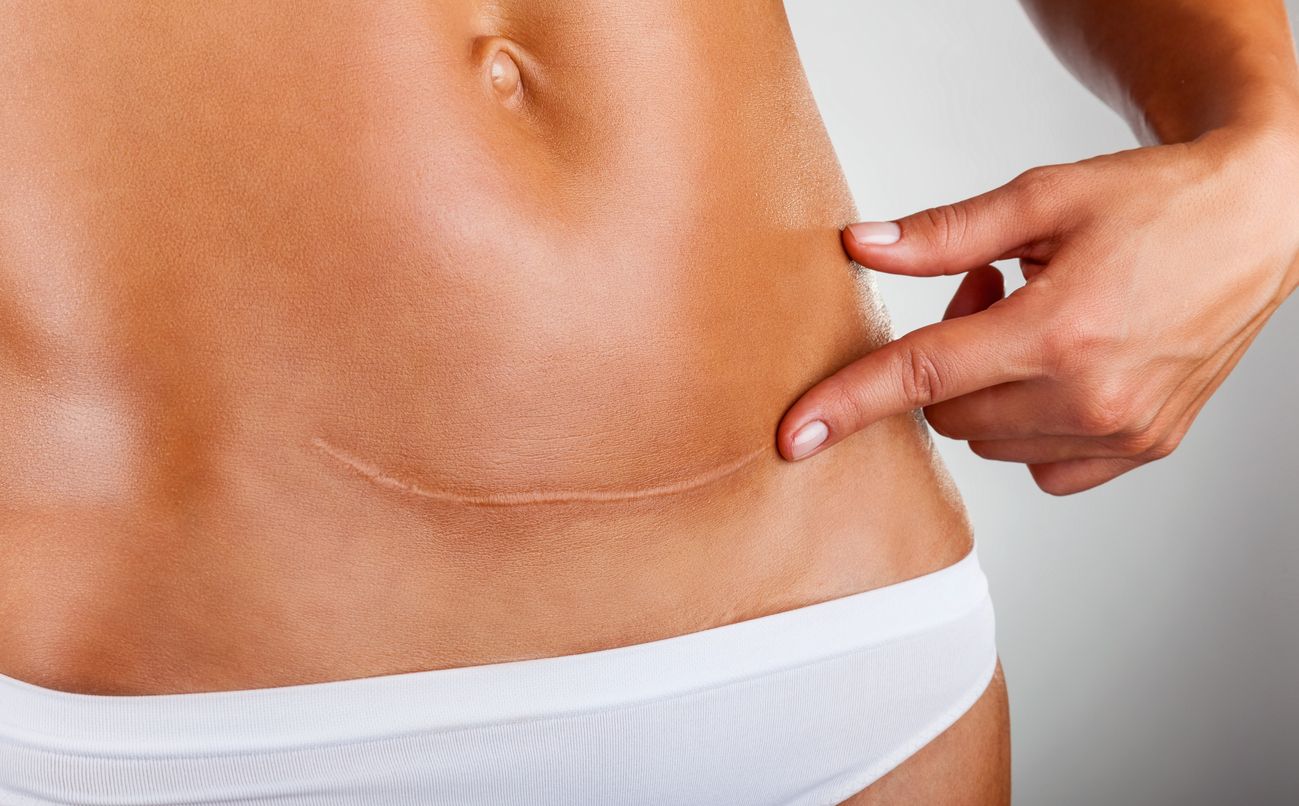Postpartum recovery can be difficult, regardless of whether you had a vaginal or cesarean delivery. Each method of delivery comes with its own recovery drawbacks! With vaginal deliveries, you may experience pain, swelling, and discomfort in your vaginal area for days to weeks after your baby is born. With a c-section, you'll be balancing caring for a newborn while recovering from major abdominal surgery. Childbirth is physically demanding, no matter how your baby makes it earth-side!
When you have a c-section, you're left with a scar on your belly that will be with you forever (unless you make the decision to have it surgically corrected once you're done having kids). For many women, the scar is just that - a scar. Something they look at that may remind them of their pregnancy and childbirth. But for other women, a c-section scar can be a source of pain and discomfort, even many years after their children were born.
A painful c-section scar can be difficult to live with, and it often impacts a woman's health and lifestyle. There's no one reason why your c-section scar would be causing you pain years later, but there are several possibilities. If your c-section scar is still causing you pain, talk to your doctor about these potential causes.
Keloid Or Hypertrophic Scarring
Not all scars are created equal; your body's healing process may cause incisions or wounds to heal differently, resulting in different types of scars that could be potentially painful over time. According to What to Expect, sometimes c-section scars can turn into keloid scars or hypertrophic scars. Keloid scars are when the scar tissue grows beyond the boundaries of the wound or incision, causing lumps of scar tissue. Hypertrophic scars are scars that are firmer and thicker, but generally within the same boundaries as the original wound.
Some women who develop keloid or hypertrophic scars are most concerned about their appearance. But for others, these thicker scars can cause pain and discomfort; they may limit movement, or be incredibly sensitive under clothing.
Adhesions
Adhesions are scar tissue that connect two parts of tissue or organs together. According to E Medicine Health, adhesions are common following abdominal or pelvic surgery of any kind, including c-sections. Adhesions occur inside of the abdomen so they can't be seen with the naked eye (unlike a scar on the outside of your body). And while they are generally painless, they can lead to more serious complications.
It's not uncommon for adhesions to go undetected for months or even years. But they are the primary cause of small bowel obstructions in adults, and are believed to be a contributing factor to the development of chronic pelvic pain. As the scar tissue of the adhesion begins to restrict movement within the small intestine, food doesn't pass as easily through the digestive system and the bowel may become blocked.
Endometriosis
This a rare complication after a c-section, but still one to consider if your scar is causing you pain years later. Endometriosis is when the tissue that lines your uterus begins to grow and spread outside of the uterus. It's a painful medical condition that can affect everything from your menstrual cycle to your fertility.
After a c-section, according to Healthline, it's possible for endometrial tissue to begin to grow in the incision site. Symptoms include mass or lump in the surgical scar that may cause pain and even bleeding. Because the lump is made up of endometrial tissue, the bleeding may be timed with your menstrual cycle. Again, this is a very rare cesarean complication, and because of this, it's often misdiagnosed. If you suspect that you've developed cesarean-related endometriosis, it's important to talk to your doctor about diagnosis and possible treatment options.
Sources: Healthline, What to Expect, E Medicine Health




